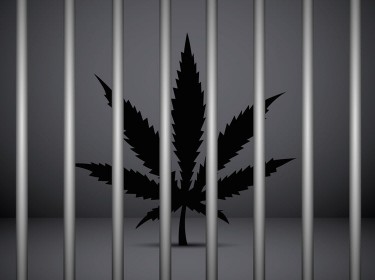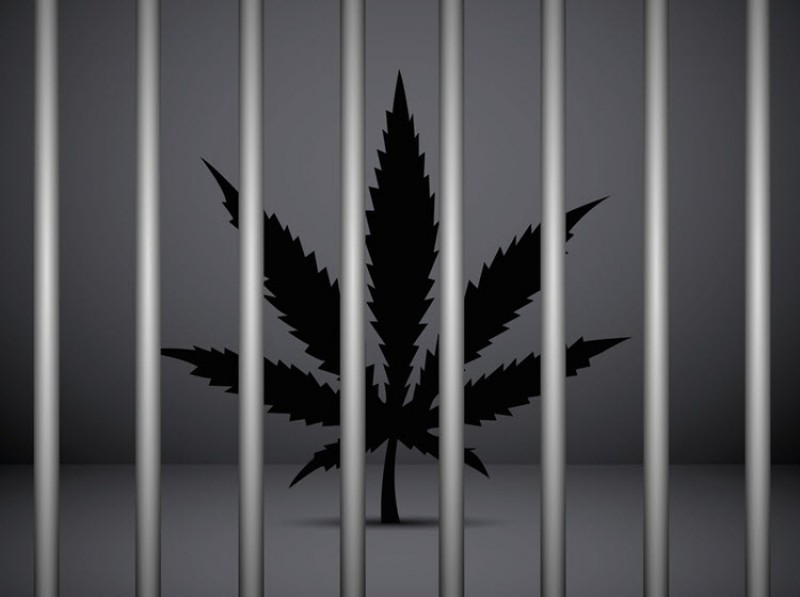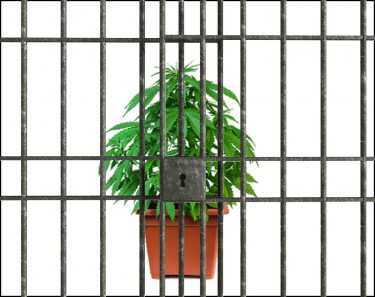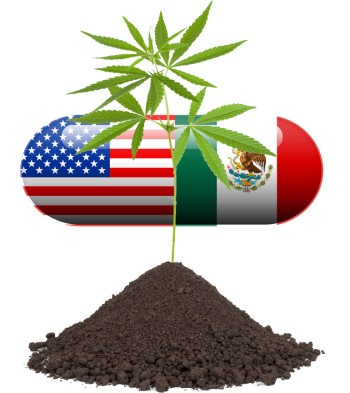California Supreme Court Rules 5-2 That Prisoners Cannot Possess Marijuana While in Prison

Out of a seven-man panel, only two voted that inmates in California prisons be allowed to possess and use marijuana.
California has always been ahead of other states with their cannabis reforms, but the measure to decriminalize marijuana for prison inmates seems far-fetched.
Last week, the California Supreme Court decreed that possession of marijuana within the California prison premises remains illegal. This means that prisoners under the penal system in California will be penalized if found in possession of cannabis flowers or products. This ruling overturned a previous lower court ruling.
In 1996, California became the first state to approve the use of marijuana for its therapeutic benefits. Legislation for Adult-use marijuana was finally approved in 2016; 20 years after medical marijuana was legalized.
California currently holds the record of having the largest legal market for recreational weed in the world.
This is the legislative measure used to legalize the possession and use of recreational marijuana by Californians that are at least 21 years of age.
The prop 64 law appears to have loopholes in it, as arguments over whether or not prisoners should be able to have marijuana emanated from this measure.
There have been several arguments in courts to this effect with different judges ruling to be for or against it.
Proposition 64 was passed by voters in 2016 to approve the possession and usage of a defined amount of adult-use cannabis.
Some advocates have implied that the law also supports the usage of cannabis by inmates, whereas it is difficult to comprehend that voters implied this when they voted on the bill.
Before the Supreme Court made the ruling on Thursday, the lower courts have held several proceedings to this effect with no concrete conclusion reached.
Lower Court's Ruling
In 2019, a lower 'appellate' court ruled that prisoners could possess marijuana but could not consume it.
This ruling was illogical, a justice said that the ruling opposed common sense of reasoning. It made no sense to allow prisoners to have up to 1 ounce of marijuana within a penal system.
The California attorney general opposed this ruling on the grounds that Proposition 64 did not state that prisoners can have or hold the drug while in prison. The high court also concurred with the attorney general and added that prop 64 was in no way connected to Californians Serving penalties in prison.
Associate Justice Joshua Groban wrote that voters had no wish to decriminalize marijuana in California prisons. Writing on behalf of the majority, he added that the majority were solidly behind the Attorney General.
The majority are sure that if the writers of the proposition 64 measure wanted to group prison inmates within the bill, they would have laid it out explicitly. It is implausible that the drafters had plans to change prison cannabis laws this way.
The lower court suggested that the state correction officials should consider adding that 'marijuana is prohibited within the prison' to the rules. Like alcohol and tobacco, marijuana will also be considered a rule violation.
This would prevent new charges from being added to the counts issued against inmates, and sentences would not be lengthened as a result.
The Supreme Court's Ruling
The conviction of five prison inmates found with marijuana within the prison premises was contested by the defendants at the 3rd District Court of Appeals based in Sacramento. The appeal courts overturned the convictions stating that according to the language used in the state law, it was only illegal to use cannabis in California prisons. The defendant's attorney explained that the law did not clearly state that it considers possession of cannabis in prison to be illegal.
The case was transferred to the Supreme Court after the state attorney general challenged the ruling of the Sacramento-based appeal court. The session should have been held in 2020. The coronavirus lockdown halted all court activities within the state and it was postponed.
Like the California appellate courts ruled that possession of cannabis in prisons remains a criminal act, the Supreme court also ruled the same.
The Minority
Associate Justices Leondra Kruger and Mariano-Florentino Cuéllar argued in a partial dissent. They wrote for the minority and claimed that while the voters did not explicitly approve the possession of marijuana in prisons, they may have intended to give inmates in prisons some form of leniency.
The contents of prop 64 cause two felony statutes to overlap. It indirectly gives prosecutors the choice of picking between charges where one has a tougher penalty than the other.
Justice Kruger reasoned that the voters may have written prop 64 that way as a means to lessen the penalties for inmates found with cannabis. This can go both ways, as it could backfire on the inmate.
The majority
Justice Groban wrote that the majority understands there is a partial difference in the law guiding the general cannabis possession compared to the laws guiding the possession of cannabis within prisons and jails in California. This extreme disparity can also be observed in laws treating possession of other substances like alcohol and tobacco.
The law states that inmates found with cannabis behind bars in prison or jail risk getting an eight-year prison sentence for as little as one gram of cannabis. This law seems unfair, but a prison is a correctional facility and prohibited drugs shouldn't be found within its premises.
Approving the use and possession of cannabis for prison inmates may not be a safe option, as officials may be exposed to harm from inmates high on psychoactive drugs.
Bottom Line
Recreational weed remains banned in California prisons. The voters can also begin the process to correct the loopholes to prevent a recurrence of this form of illogical argument.
As Justice Groban wrote, the voters had no idea that proposition 64 could have an impact on the existing prohibition on the possession and usage of cannabis in correctional facilities in California prisons.
Note that medical marijuana has not been approved to be used by prisoners in California prisons.
MARIJUANA IN JAILS, READ MORE...
NEW MEXICO TO ALLOW INMATES ACCESS TO MARIJUANA, CLICK HERE!






